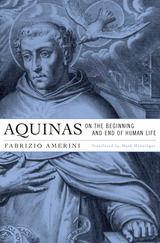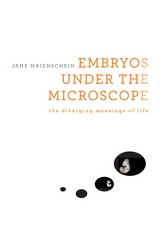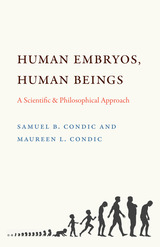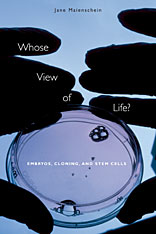
In contemporary discussions of abortion, both sides argue well-worn positions, particularly concerning the question, When does human life begin? Though often invoked by the Catholic Church for support, Thomas Aquinas in fact held that human life begins after conception, not at the moment of union. But his overall thinking on questions of how humans come into being, and cease to be, is more subtle than either side in this polarized debate imagines. Fabrizio Amerini—an internationally-renowned scholar of medieval philosophy—does justice to Aquinas’ views on these controversial issues.
Some pro-life proponents hold that Aquinas’ position is simply due to faulty biological knowledge, and if he knew what we know today about embryology, he would agree that human life begins at conception. Others argue that nothing Aquinas could learn from modern biology would have changed his mind. Amerini follows the twists and turns of Aquinas’ thinking to reach a nuanced and detailed solution in the final chapters that will unsettle familiar assumptions and arguments.
Systematically examining all the pertinent texts and placing each in historical context, Amerini provides an accurate reconstruction of Aquinas’ account of the beginning and end of human life and assesses its bioethical implications for today. This major contribution is available to an English-speaking audience through translation by Mark Henninger, himself a noted scholar of medieval philosophy.

Too tiny to see with the naked eye, the human embryo was just a hypothesis until the microscope made observation of embryonic development possible. This changed forever our view of the minuscule cluster of cells that looms large in questions about the meaning of life. Embryos under the Microscope examines how our scientific understanding of the embryo has evolved from the earliest speculations of natural philosophers to today’s biological engineering, with its many prospects for life-enhancing therapies. Jane Maienschein shows that research on embryos has always revealed possibilities that appear promising to some but deeply frightening to others, and she makes a persuasive case that public understanding must be informed by up-to-date scientific findings.
Direct observation of embryos greatly expanded knowledge but also led to disagreements over what investigators were seeing. Biologists confirmed that embryos are living organisms undergoing rapid change and are not in any sense functioning persons. They do not feel pain or have any capacity to think until very late stages of fetal development. New information about DNA led to discoveries about embryonic regulation of genetic inheritance, as well as evolutionary relationships among species. Scientists have learned how to manipulate embryos in the lab, taking them apart, reconstructing them, and even synthesizing—practically from scratch—cells, body parts, and maybe someday entire embryos. Showing how we have learned what we now know about the biology of embryos, Maienschein changes our view of what it means to be alive.


Saving lives versus taking lives: These are the stark terms in which the public regards human embryo research--a battleground of extremes, a war between science and ethics. Such a simplistic dichotomy, encouraged by vociferous opponents of abortion and proponents of medical research, is precisely what Jane Maienschein seeks to counter with this book. Whose View of Life? brings the current debates into sharper focus by examining developments in stem cell research, cloning, and embryology in historical and philosophical context and by exploring legal, social, and ethical issues at the heart of what has become a political controversy.
Drawing on her experience as a researcher, teacher, and congressional fellow, Jane Maienschein provides historical and contemporary analysis to aid understanding of the scientific and social forces that got us where we are today. For example, she explains the long-established traditions behind conflicting views of how life begins--at conception or gradually, in the course of development. She prepares us to engage a major question of our day: How are we, as a 21st-century democratic society, to navigate a course that is at the same time respectful of the range of competing views of life, built on the strongest possible basis of scientific knowledge, and still able to respond to the momentous opportunities and challenges presented to us by modern biology? Maienschein's multidisciplinary perspective will provide a starting point for further attempts to answer this question.
READERS
Browse our collection.
PUBLISHERS
See BiblioVault's publisher services.
STUDENT SERVICES
Files for college accessibility offices.
UChicago Accessibility Resources
home | accessibility | search | about | contact us
BiblioVault ® 2001 - 2024
The University of Chicago Press









